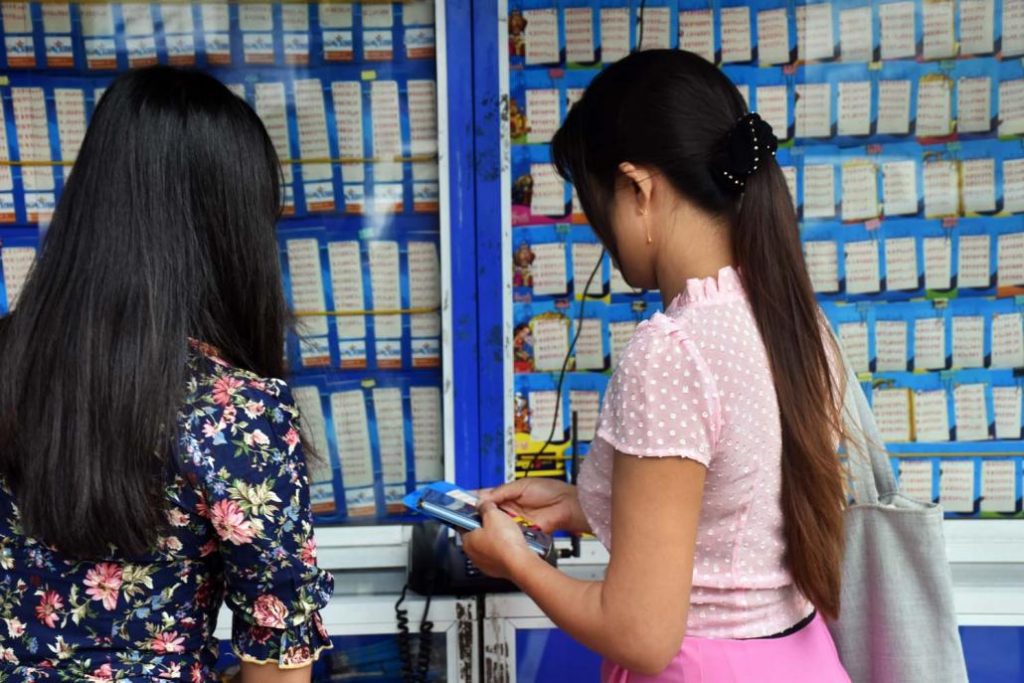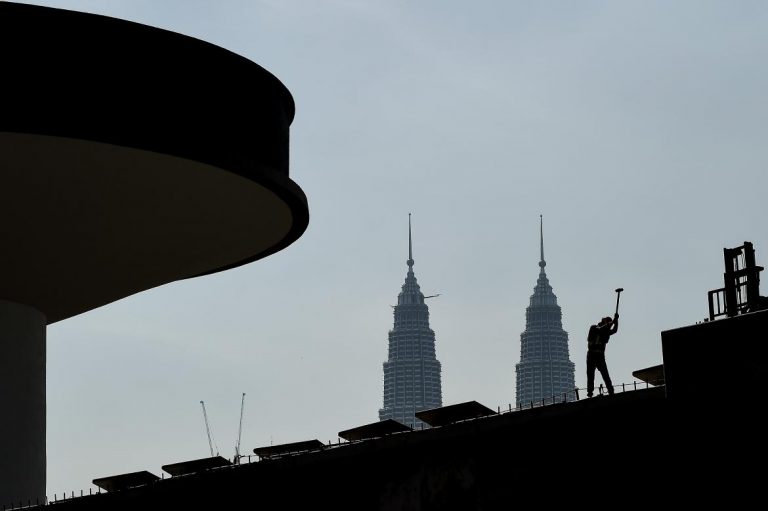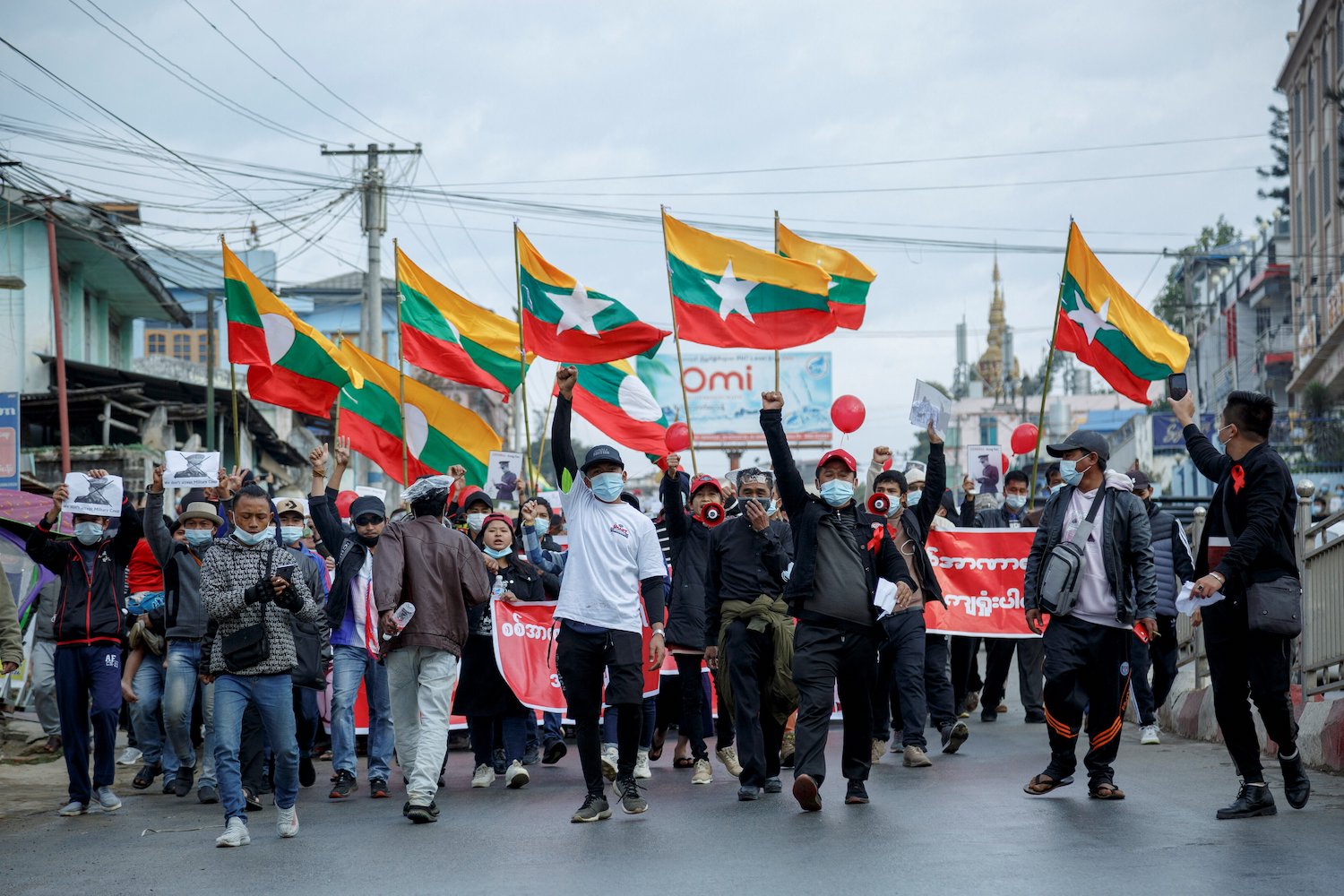A boycott of the state lottery launched after the February 1 coup has been so effective that the draw has twice been postponed, but it has also left distributors and retailers with millions of unsold tickets.
By FRONTIER
“I never expected that the people would be so united that they would boycott the lottery,” said the ticket distributor for the state’s Aung Bar Lay (“You May Win”) lottery.
The distributor, who asked not to be named, is among those suffering big losses since a lottery boycott campaign was launched on social media on February 7 to deprive the military junta of a lucrative source of revenue.
The monthly Aung Bar Lay lottery generates tens of millions of dollars in revenue a year for the government, with up to 40 million tickets sold each month.
The State Lottery Directorate sells tickets through an application system to distributors, who then sell them on to smaller distributors, retailers and sometimes direct to customers.
It’s normally a lucrative business, but the boycott has left distributors and retailers with millions of unsold tickets purchased from the directorate in late January, just days before the coup.
One large distributor with 50 retail outlets throughout the country told Frontier on March 22 that he bought K2 billion worth of tickets on January 26, anticipating he’d be able to sell most of them for the March 1 draw.
But February sales were so bad he’s been forced to close all of his outlets, and his staff have returned to their hometowns. He’s also facing social pressure to stop selling tickets.
“We sold a few tickets before the crackdowns began against the protests but we have been criticised by some people for selling them,” he said.
The State Lottery Directorate does not refund distributors for unsold tickets. Further down the line, vendors cannot get refunds from the distributors. The government even faces the prospect of losing money on the draw, as it typically pays out billions of kyat in prizes, including a top prize of K1.5 billion.
The directorate, which is under the Ministry of Planning, Finance and Industry, has already twice postponed the lottery draw due to lack of sales.
After the March 1 draw was pushed back to March 15, the ministry announced on March 21 that the April 1 draw had been postponed to May 1 for the “convenience” of sellers and buyers.
U Min Htut, director-general of the Internal Revenue Department, said the lottery draw was delayed to give distributors and vendors more time to sell their tickets. The ministry had no other way to solve the problem, he told Frontier on March 23, apparently ruling out the possibility of a refund.
Min Htut also played down the slump in sales, suggesting it wasn’t unusual. “Sales declined after the ticket price rose from K500 to K1,000 in April 2019 and also during COVID-19. It’s nothing special; there will always be losses and profits,” he said. “We are confident that sales for the May 1 draw will not be down and we can give out the prizes.”
But distributors, retailers and vendors who sell tickets on neighbourhood streets from pushcarts told Frontier the situation was unprecedented.
They say the February 1 military coup and subsequent boycott are clearly the reason for the sales slump.
“Customers were still buying tickets throughout the COVID-19 pandemic, but the situation is much worse now – sales have almost completely stopped,” said Ko Aung Gyi, who runs a lottery ticket store in Yangon Region’s inner Thingyangyun Township.
Daw Thinzar Myo, a lottery vendor in Yangon’s North Okkalapa Township, said she was surprised by Min Htut’s comments; not only had ticket sales almost halted, but customers say they have no intention of playing the lottery again while the military is in power, she said.
“I can’t afford to continue selling lottery tickets; I spent K200,000 on tickets but sold only K80,000; it’s a big loss,” she told Frontier. “I’m going to sell eggs instead.”
The boycott could even spell the end of the lottery, some industry figures say.
Lottery association vice chair U Thiha Win Maw said that after suffering big financial losses in February, enterprise agents were giving deep thought about whether to continue buying lottery tickets.
“The many unsold lottery tickets in their hands represent their loss,” he told Frontier on March 22.
One distributor said lottery sales had already been badly affected by the impact of the COVID-19 pandemic and then exacerbated by the military coup.
He said sales were unlikely to return to normal until the military gave up power.
“I’m not going to be buying any more tickets, both because I’ve already lost enough money and it’s not safe for workers to sell them,” he said. “I don’t think people will buy tickets while the security forces are brutally cracking down on protesters.”







